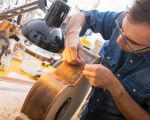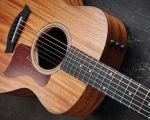Finding the Best Clarinet Reeds for Beginners: A Personal Guide
As someone who began learning the clarinet a few years ago, I know firsthand how crucial it is to select the right reed when you’re just starting out. If you’ve recently picked up the clarinet or are thinking about learning, choosing the right reed can make all the difference in your sound quality, tone, and overall playing experience. Let me take you through my journey, share some tips, and guide you through the process of picking the best clarinet reeds for beginners.
1. Why Your Reed Matters: Understanding the Basics
When I first began playing the clarinet, I didn’t realize how much a reed could affect my playing. At first, I thought all reeds were the same, but after struggling with inconsistent sounds, I quickly learned that the reed is one of the most important elements in creating a clear and rich tone. Essentially, the reed vibrates when you blow air through it, which produces the sound you hear. A reed that’s too hard or too soft can make it difficult to produce a good tone, especially when you're just starting out.
The key factors that impact how a reed performs include:
- Hardness: Reed strength ranges from soft to hard, and choosing the right strength is essential for producing a clean and consistent sound.
- Material: Most reeds are made from cane, but there are synthetic reeds that some beginners may prefer for their durability and consistency.
- Shape: Reeds come in different shapes, and the cut of the reed can impact its response and tone.
2. The Best Clarinet Reeds for Beginners
When I was first starting, I tried several different reeds, and over time, I found some that were more beginner-friendly than others. Here’s a list of the best clarinet reeds that helped me develop my skills and would be perfect for beginners:
2.1. Rico Royal Reeds
Rico Royal is one of the most popular choices for clarinetists of all levels, but especially for beginners. They offer a great balance between flexibility and durability, which makes them an ideal choice for new players. I remember my first few months of practice with Rico Royals—though I was still adjusting to my embouchure, these reeds provided a responsive sound without being too difficult to control. They’re consistent, affordable, and widely available.
2.2. Vandoren Traditional Reeds
If you want a reed that will provide a more refined tone, Vandoren Traditional Reeds are a fantastic option. They are known for their rich, warm sound and smooth articulation. These reeds have been my go-to when I started performing in a group, and I found that they gave me a little more control over my tone. While they may feel a bit harder compared to Rico Royals, they’re still a great choice for beginners who are starting to get the hang of their clarinet technique.
2.3. D'Addario Select Jazz Reeds
Though D'Addario Select Jazz reeds are often favored by jazz musicians, they’re also an excellent option for beginners who want a smoother, more consistent sound. I discovered these reeds when I started experimenting with different styles of music, and I was amazed by their versatility. They’re a bit pricier than the others, but for the extra smoothness and ease of playing, they’re worth the investment. They’re perfect for beginners who want to explore different genres as they grow with their instrument.
2.4. Legere Synthetic Reeds
For beginners who struggle with reed maintenance, Legere synthetic reeds offer a hassle-free alternative. I tried a synthetic reed during my second year of playing when I became frustrated with the fragility of natural reeds. The Legere reed was durable, consistent, and easy to play right out of the box. While they don’t have quite the same tonal warmth as cane reeds, they are a great choice for beginners who need something long-lasting and low-maintenance.
3. Reed Strength: How to Choose the Right Hardness
One of the most common challenges I faced as a beginner clarinet player was selecting the right reed strength. When you buy reeds, you’ll typically see them labeled by strength, ranging from soft (1) to hard (5). I started with strength 2 reeds, which are a safe bet for beginners. They offered the right balance between flexibility and resistance, making it easier to produce a good sound.
Here’s a breakdown of reed strengths and what you might want to consider:
- Soft (1 to 2): Ideal for beginners with a light embouchure. These reeds are easier to play but may not provide as full of a tone.
- Medium (2.5 to 3): A good choice as you progress in your playing. These reeds provide more resistance, helping to develop a stronger embouchure.
- Hard (3.5 to 5): Typically for more advanced players, hard reeds require more air and embouchure control.
When I first started, I had to experiment with a few different reed strengths before I found the one that worked best for me. I recommend starting with a strength 2 or 2.5 reed, and adjusting from there as your playing improves. Every player is different, so it’s essential to try a few options to see which reed feels right for your embouchure and playing style.
4. Reed Care: How to Get the Most Out of Your Reeds
Reed care was something I initially overlooked, but I quickly learned that maintaining your reeds is key to getting the best sound and longevity out of them. I remember the first time I accidentally ruined a reed by not soaking it properly before playing. This mistake taught me the importance of proper reed care.
Here are some tips to keep your reeds in great condition:
- Soak your reeds: Always soak your reed in water for about 3-5 minutes before playing to allow it to soften and vibrate properly.
- Don’t bite too hard: Applying too much pressure can cause the reed to break down or crack prematurely.
- Store properly: Store your reeds in a reed case to keep them from warping or getting damaged. Avoid leaving them in a hot or humid environment.
- Rotate your reeds: Don’t use the same reed every day. Rotate between a few reeds to prevent them from wearing out too quickly.
By following these simple care tips, you’ll be able to extend the life of your reeds and ensure consistent sound quality as you progress with your clarinet playing.
If you're in search of the best clarinet reeds for beginners, or if you want to learn more about other essential clarinet gear, I highly recommend checking out Beat Trigger. They offer an excellent selection of reeds, mouthpieces, and other accessories that will make your clarinet journey much more enjoyable.








